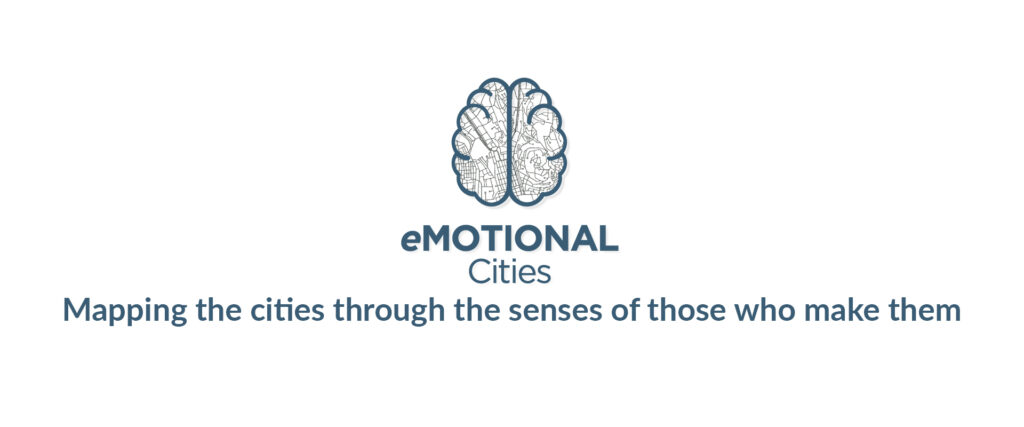Project description:
Funded by the European Commission’s Horizon 2020 Framework Programme, eMOTIONAL Cities is a 48-month project, with a total budget of nearly 5 million Euros, that is designed to fully characterise the intensity and complexity of urban health challenges and inequalities.
As the world is becoming more urbanized and cities of the future need to be people-centred, robust evidence-based knowledge on the underlying biological and psychological processes, by which Urban Planning & Design influence brain circuits and human behaviour, will be critical for policy making on urban health. Emotions are key drivers of our decisions; similarly, our choices are the conduit for our well-being and health.
The eMOTIONAL Cities research focusing on the signals triggered in our neurobiological architecture, responsible for emotions and decisions, while humans interact with the urban environment, will shed light on how to improve population health, physical and/or mental.
Adopting a systems approach, based on natural experiments and actual problems of case-study cities, eMOTIONAL Cities will provide robust scientific evidence on how the natural and built urban environment shapes human cognitive and emotional processing, with a perspective that also incorporates age, gender and vulnerable groups’ specificities – such as elderly subjects with mild cognitive impairment.
The specific objectives of eMOTIONAL Cities are:
- Identify policy-relevant research questions and develop a “eMOTIONAL Cities conceptual framework” for linking urban environment, neuroscience and physical/mental health and well-being.
- Apply geospatial analytics, through quantitative and qualitative methodologies, to four different urban case studies, across two continents (three in Europe and one in the US), in order to determine critical urban area characteristics, as well as to map physical environments, socio-economic characteristics, mobility patterns and geo-tagged social media (Twitter and Instagram) determinants of health.
- Combine controlled laboratory experiments with field ecological research by directly capturing peoples physiological and neurobiological responses while interacting with specific urban artefacts.
- Collect and analyse both geospatial and neuroscience data paying specific attention to vulnerable groups, age and gender aspects, in order to identify barriers and facilitators of urban spaces that are truly inclusive.
- Create an open spatial data infrastructure (SDI) capable of integrating multisource heterogeneous geospatial and neuroscience datasets and time series information.
- Integrate statistical data and geospatial descriptions with contextual neuroscience information to generate evidence-based knowledge on how the natural and built environment, as well as the social fabric, affect cognitive and affective well-being.
- Provide insights and policy-related recommendations to improve the physical and mental health and well-being in cities by leveraging the project’s evidence-based knowledge with machine learning-based scenario discovery.
- Promote the education on healthy cities and urban design practices, based on interdisciplinary knowledge that combines data from social sciences with natural and medical sciences (neuropsychiatry and neuroscience).
- Raise awareness on how the built environments relate with human senses and shape emotions and health, fostering citizens to act and request for better policies that address well-being.
- Ensure project sustainability after its conclusion.
In particular, through specific outdoor experiments, eMOTIONAL Cities will invite adult volunteers to perform trajectories in the urban environment as if moving through a regular working day. During their interactions with the environment, spatial, environmental, behavioural, physiological and neurobiological data will be collected. These outdoor experiments will be carried out in four sites – Copenhagen, Lisbon, London, and Lansing/East Lansing in the USA.
Participants will be asked to carry smartphones with apps specifically designed for customized adaptive stated perception surveys regarding context-specific built and travel environment, as well as for detailed data on daily travel and activity patterns across multiple days for use in travel behaviour modelling. In case you want to know more about the outdoor experiments and are interested to volunteer, please contact the project coordinators – contact details below.
The consortium of eMOTIONAL Cities:
Lead
Institute of Geography and Spatial Planning of the University of Lisbon
Co-coordinator
Faculdade de Medicina da Universidade de Lisboa
Partners
Michigan State University
University of Cambridge
Climateflux
Starlab Barcelona Sl
NeuroGears Ltd
Danmarks Tekniske Universitet
Tallinna Tehnikaulikool
EarthPulse
Sociedade Portuguesa de Inovação
University of Tartu

For more information, please contact:
emocities [-at-] climateflux [-dot-] com

This project has received funding from the European Union’s Horizon 2020 Research and Innovation Programme under Grant Agreement nº 945307. The document represents the view of the author only and is his/her sole responsibility: it cannot be considered to reflect the views of the European Commission. The European Commission does not accept responsibility for the use that may be made of the information it contains.